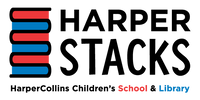Pride On Every Page: Librarian Guest Post by Rob Bittner, PhD


Pride Isn't Just About Peacocking
by Rob Bittner, PhD
Photo assistance by Fluffy the Turtle
When I was first asked to write a post for this series, I was thrilled. “I have so many ideas!” I said to myself. But then I sat down and realized I was at a loss. So, in the style of so many undergraduate papers, I want to begin by defining “pride” and thinking about what it means to me and the work of so many educators and librarians.
According to the OED, pride can mean a few things: or a reference to various bodily organs; to show off one’s plumage (see “Peacocking”), or more relevant perhaps, “a consciousness of what befits, is due to, or is worthy of oneself or one’s position; self-respect; self-esteem, esp. of a legitimate or healthy kind or degree.” When I was a youngster, I was raised in a conservative evangelical Christian household where a word like “pride” would conjure up the seven deadly sins or the idea that a person was full of themselves. Not the best reference point.
After many years of internal struggle and self-doubt, I came to a place where I felt comfortable(ish) in my own skin, and I felt somewhat proud of myself and my accomplishments. And when I began to seek out a queer community, I found that Pride was also an act of rebellion; I could be proud of who I was in the face of oppression and rejection, and that was something that also pushed me to find my own voice within the cacophony of messages telling me I was worthless.


When I first found David Levithan’s Boy Meets Boy, I saw myself reflected in the pages of a book. Someone else felt similar enough that he wrote it down and published it. I subsequently felt proud of myself, for finding the book, for surviving to read it. I was part of a much larger history that I was only beginning to understand.
I was reading a lot of early queer YA in my undergrad and realized that while some challenged norms, many were very white and very much focused on tragedy and hardship. I learned a lot from these early books, but I wanted more, and unlike many young people who grew up earlier in the 20th century, I have had the privilege to witness an increase in LGBTQIA+ literature for youth, not only in terms of numbers, but representation.


I will never forget first reading The God Box (Alex Sanchez) and seeing a non-white gay Christian represented without stereotypes. When I read Dress Codes for Small Towns (Courtney Stevens), I was reading a book with gender-nonconforming, queer Christian representation. Hero (Perry Moore) showed me that gay people could be heroes, and later, When the Moon Was Ours (Anna-Marie McLemore) showed me that queer and trans stories didn’t all have to rely on realism. It was, and still is, an incredible feeling witnessing this growth, even with the pitfalls along the way.
Recently I developed a new course, specifically focusing on LGBTQIA+ literature for children and teens and coming up with the reading list is incredibly difficult. Even with so many books coming out each year, and yet we still need more diversity, more representation of identities marginalized within queer communities, and more genre fiction! At the same time, I need to ground myself in the history, remember what pride means, and remind myself of the acts of resistance that make so many LGBTQIA+ people more resilient. It also reminds me of the pain and antagonism that so many young people face.
A month ago, I was excited to be ending the term, to be looking back at what my students and I learned together. We were discussing histories of oppression and celebrating changes through the decades, when the ALA list of banned and challenged books came out: eight of the ten books on the list were challenged for LGBTQIA+ content. I felt like crying. But the list also reminded me why I teach what I do and why it’s so important for librarians and educators to know what literature exists, to see how it can be used to reflect the lives and experiences of as many people as possible, and to educate those who have not previously had the opportunity or have not felt the need to learn about LGBTQIA+ people and history. I now can’t help but think of so many literary windows and mirrors for young readers.


I think about how to be as diverse and inclusive as possible. I think of books like Brave Face (Shaun David Hutchinson), All Boys Aren’t Blue (George M. Johnson) and The Black Flamingo (Dean Atta). And trans teen memoirs like Some Assembly Required (Arin Andrews) and Rethinking Normal (Katie Rain Hill).
I think of books like Jack of Hearts (and Other Parts) (Lev Rosen) and Our Own Private Universe (Robin Talley) that don’t shy away from intimacy and sex-positivity.
I think of books like Birthday (Meredith Russo) and Felix Ever After (Kacen Callender) and For Today I Am a Boy (Kim Fu), which each explore what it means to be transgender and to fight back against systems of oppression that society pushes on young people every day to make them conform.
I think of Darius the Great is Not Okay (Adib Khoram) that looks at quiet and subtle queer relationships, and Bloom (Kevin Panetta and Savanna Ganucheau) about boys who love baking, and Radio Silence (Alice Oseman) that features an asexual teen and a viral podcast, and Proxy (Alex London) about queerness in a sci-fi future.


I think of the magic of being queer and trans in Cemetery Boys (Aiden Thomas) and The Fascinators (Andrew Eliopulos), and the tragedy around LGBT experience in Like a Love Story (Abdi Nazemian) and Two Boys Kissing (David Levithan).
I think of Pride: The Celebration and the Struggle (Robin Stevenson), Keep This to Yourself (Tom Ryan), and Cub (Paul Coccia), and all the other books by incredible LGBTQIA+ Canadian authors.
I think of all of these books and so many more when I think of Pride, both as an event and as a way for young LGBTQIA+ people to feel empowered. We need to continue educating new generations and supplying literature to all generations of readers and bringing awareness to those who are just learning to be themselves and coming out to their families and communities. I think of so many things—books, people, history—and I want to share it all.
I want all of us, librarians and educators, to make the world a better place for each new generation, to ensure young people can find spaces where they feel powerful, where they feel loved, where they feel seen.
I think we’re getting there, and it’s definitely worth the trip.


Rob Bittner has a PhD in Gender, Sexuality, and Women’s Studies (SFU), and is also a graduate of the MA in Children’s Literature program at The University of British Columbia in Vancouver, BC. He loves reading a wide range of literature, but particularly stories with diverse and intersectional depictions of gender and sexuality.



